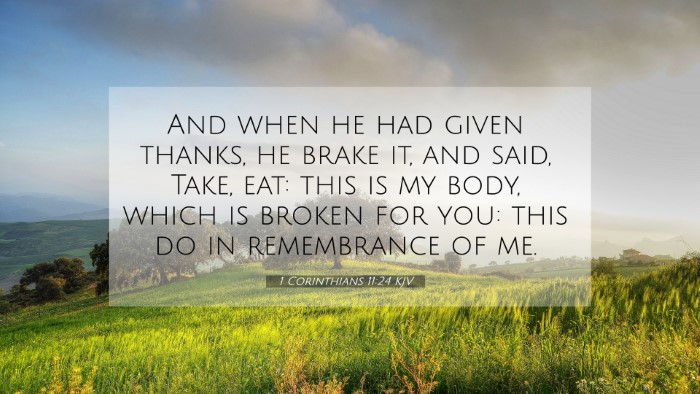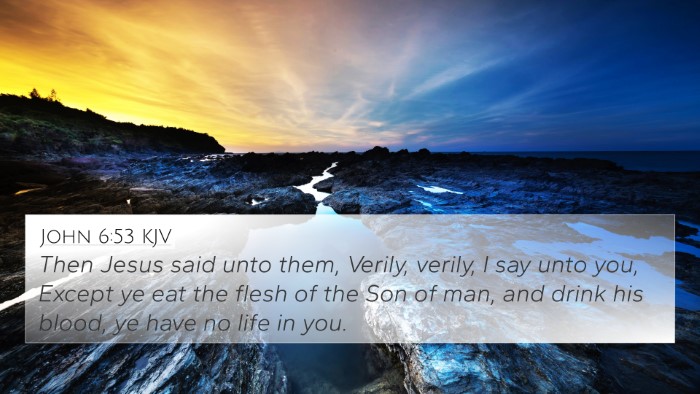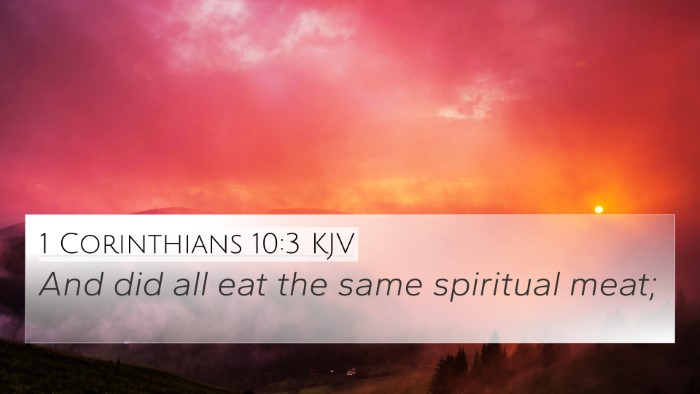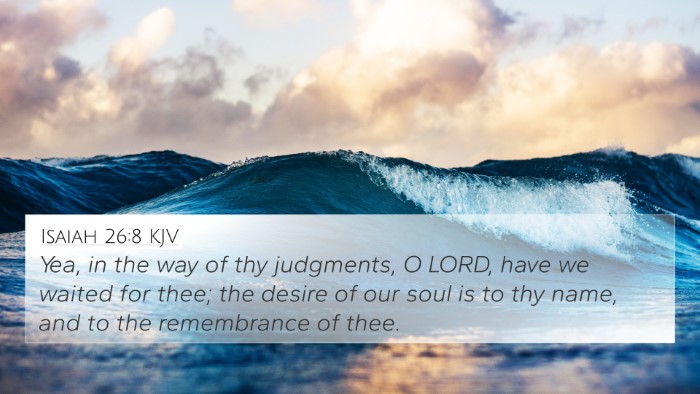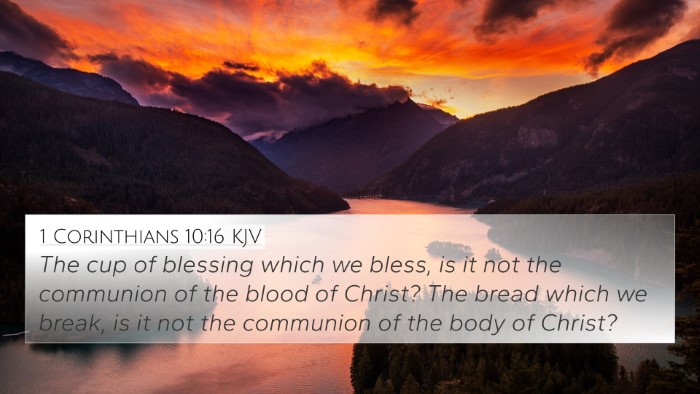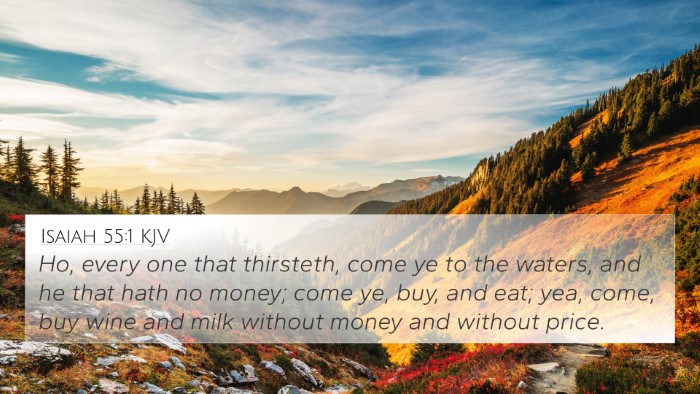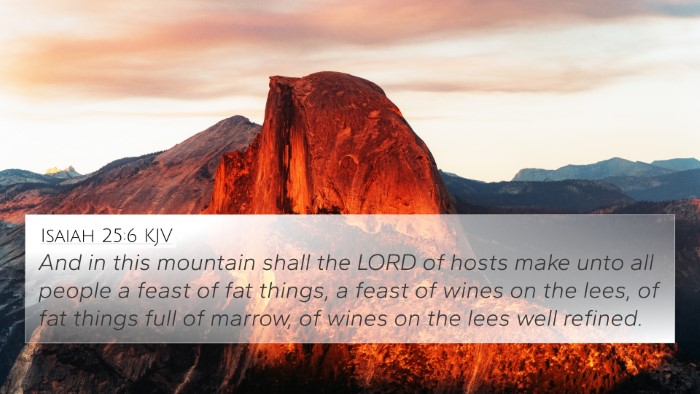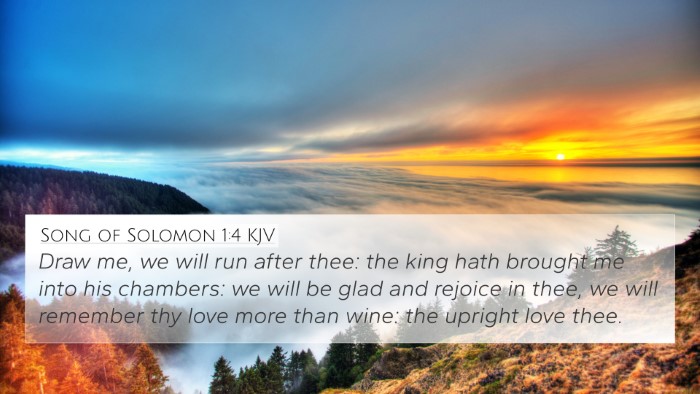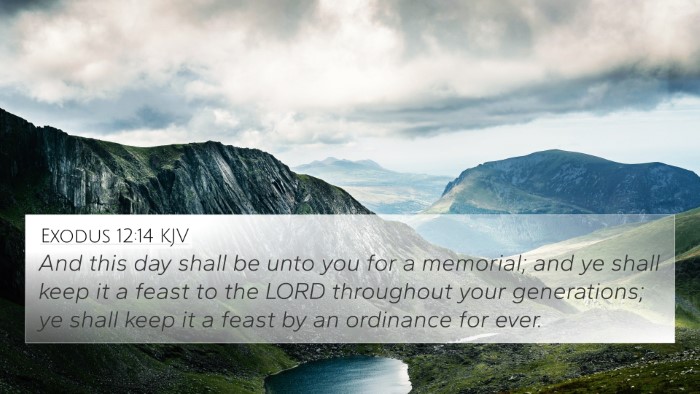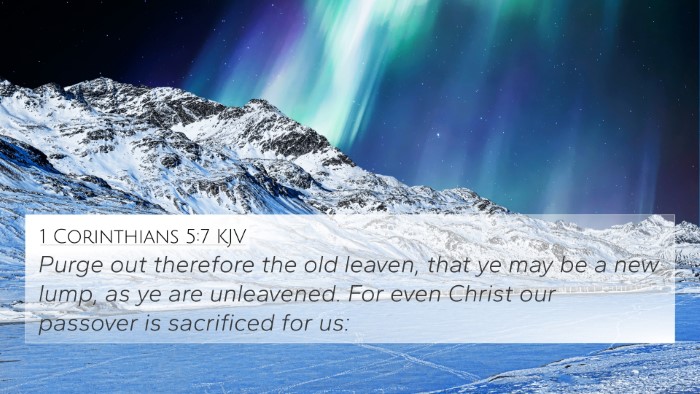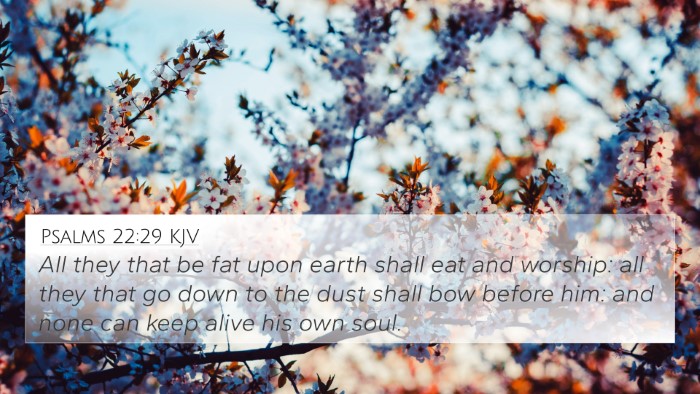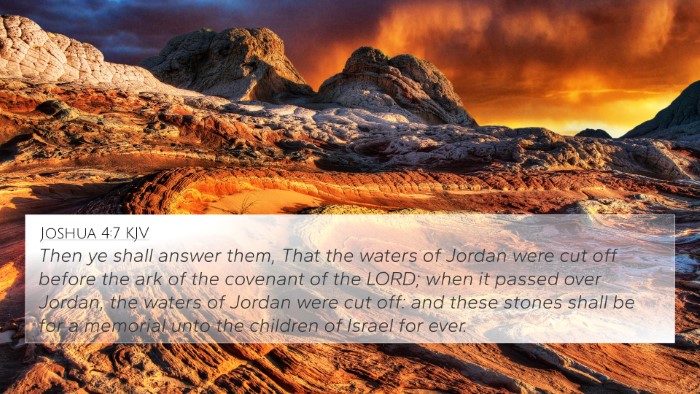1 Corinthians 11:24 - Meaning and Interpretation
Bible Verse: "And when he had given thanks, he broke it, and said, 'This is My body, which is broken for you; do this in remembrance of Me.'" (1 Corinthians 11:24)
The verse from 1 Corinthians 11:24 holds deep significance in the Christian faith as it touches upon the institution of the Lord's Supper. This passage emphasizes the importance of remembering Christ's sacrifice and communion amongst believers.
Insights from Public Domain Commentaries
Matthew Henry Commentary
Matthew Henry explains that the act of breaking bread signifies more than just sharing a meal; it represents the broken body of Christ. This act serves as a powerful reminder of the suffering that Jesus endured for humanity's sins. Henry emphasizes the command "do this in remembrance of Me," pointing out that Christ instituted this practice so that believers would continually remember His sacrifice and the covenant it established.
Albert Barnes Commentary
Albert Barnes elaborates on the phrase "My body, which is broken for you" by noting that the bread symbolizes not only Christ's physical body but also His sacrificial love. Barnes indicates that this moment is pivotal for Christians, as it encapsulates the core of the New Testament teaching — the belief in Christ's atonement and the spiritual nourishment that believers find in Him. The act also fosters unity among believers, emphasizing the communal aspect of commemoration.
Adam Clarke Commentary
Adam Clarke details the context in which Paul presents this statement, stressing that the Corinthians were misusing the Lord's Supper. Clarke notes that the breaking of bread should be an act of reverence and gratitude. He points out that the command to remember signifies an active participation in Christ's death and resurrection, highlighting the transformative power of faith and the profound mystery of Communion.
Bible Cross-References
- Matthew 26:26-28: The institution of the Lord's Supper, where Jesus shares bread and wine as symbols of His body and blood.
- Luke 22:19-20: Similar account as in Matthew, focusing on the breaking of bread and His body given for us.
- John 6:51: "I am the living bread that came down from heaven. If anyone eats of this bread, he will live forever." This verse connects to the theme of Christ as sustenance for the soul.
- Isaiah 53:5: “But he was pierced for our transgressions; he was crushed for our iniquities." This prophecy directly relates to the sacrifice referenced in 1 Corinthians 11:24.
- Acts 2:42: Early Christians devoted themselves to the apostles' teaching, fellowship, breaking of bread, and prayers, highlighting the communal practice of remembering Christ.
- 1 Peter 2:24: “He himself bore our sins in his body on the cross.” This verse reaffirms the significance of Christ's body being broken for believers.
- Exodus 12:46: Instructions regarding the Passover lamb, which aligns with the themes of sacrifice and remembrance in the Eucharist.
- Hebrews 10:19-22: Encourages believers to approach God with confidence, having their hearts sprinkled to cleanse them, echoing the sacrificial nature of Christ’s body.
- Revelation 19:9: The marriage supper of the Lamb, which signifies the ultimate communion between Christ and His Church, correlating with the meal shared in remembrance.
- Romans 6:8-10: Discusses the significance of Jesus's death and resurrection, reinforcing the reason for the bread representing His body.
Thematic Connections and Analysis
The thematic connections surrounding 1 Corinthians 11:24 can be seen across various scriptures that reflect on the sacrifice of Jesus, the practice of Communion, and the call to remembrance among believers.
- Remembrance: The exhortation to “do this in remembrance of Me” reflects a broader biblical theme of memorial acts, seen in the Passover and other significant events in Israel's history.
- Unity: The communal aspect of breaking bread emphasizes unity amongst believers, resonating with the teachings in Ephesians 4 regarding the unity of the Spirit.
- Sacrifice: The connection between the Lord's Supper and the sacrificial system of the Old Testament is profound, as it bridges the New Covenant established by Christ.
- Spiritual Nourishment: Jesus provides spiritual sustenance, affirming the significance of His body and blood in our daily lives, echoing John 4:14 about the living water.
- Celebration: The act of Communion is both a remembrance of Christ's death and a celebration of His resurrection, linking to the joy found in Romans 5:8.
Conclusion
In summary, 1 Corinthians 11:24 not only serves as an institution of the Lord's Supper but encapsulates the essence of Christ's sacrificial love, remembrance, and community among believers. By cross-referencing this verse with others, one can uncover a richer understanding of the interconnectedness of Scripture and the profound implications it holds for Christian faith and practice.
Utilizing tools for Bible cross-referencing, like a Bible concordance and a cross-reference Bible study guide, can enhance one's study and comprehension of such critical scripture verses. Engaging in a comparative study of Pauline epistles and exploring the links between the Prophets and Apostolic teachings can further deepen understanding.


